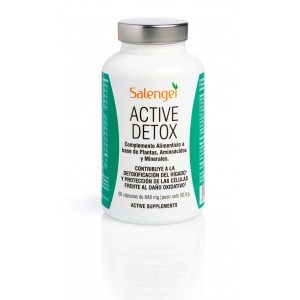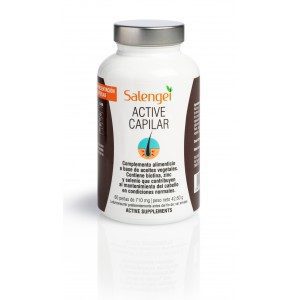Active Shape
£41.70
A natural supplement consisting of resveratrol and phytonutrients that is very effective at helping with weight loss safely and without contraindications.
Description
Active Shape® works metabolically through Garcinia cambogia – which inhibits an enzyme called citrate lyase, to prevent excess carbohydrates from turning to fat – and Gymnema sylvestre – a herb from India that works by balancing blood sugar levels. The unique shape of gymnemic acid molecules is similar to that of glucose, competing with it, allowing it to fill cell receptors in the intestinal lining, thus preventing sugar molecules to attach instead.
A formulation of Active Shape® with green tea extract was recently developed, which contains large amounts of polyphenols (40% epigallocatechin gallate) that activate the enzyme responsible for dissolving excess triglycerides. In the long run, this means green tea helps effectively burn fat.
Trans-resveratrol 95%. This ingredient alone would make an extraordinary supplement. Bio-enhanced natural resveratrol regulates the benefits of other appetite suppressants and metabolic agents. In multiple university studies, it has been shown that resveratrol activates PGC-1 Alpha, a key regulator of energy metabolism. Once activated, PGC-1 Alpha powerfully induces and coordinates expression of the genes that stimulate mitochondrial oxidative metabolism in brown fat, and many aspects of the liver response to fasting.
Wakame seaweed contains a type of carotenoid called fucoxanthin at 10%. In animal studies, fucoxanthin appeared to stimulate production of UCP1, a protein that increases thermogenesis and fat burning. This protein is found in the visceral fat that surrounds the internal organs in the abdomen (the type of fat linked to serious health conditions).
Garcinia cambogia (60% hydroxycitric acid). It acts by filling the liver’s and other tissues’ glycogen stores, thereby reducing appetite while increasing energy levels. Garcinia cambogia reduces the production of triglycerides and cholesterol, and may also increase thermogenesis, burning calories. Unlike chemical stimulants commonly used in slimming products, Garcinia cambogia does not cause insomnia, nervousness, changes in blood pressure or heart rate, and its effectiveness does not diminish over time.
Gymnema sylvestre (50% gymnemic acid). In animal studies it has been demonstrated that gymnea sylvestre reduces the sugar available for absorption in the stomach, increases insulin levels, and blocks the absorption of fat from food.
Chromium. An essential trace element for the proper use of sugar in the blood. It helps reduce cholestero and triglyceride levels and lowers body weight while increasing lean body mass.
Indications
• Increasing metabolic activity
• Reducing body fat
• Activating caloric restriction gene
• Helps improve blood sugar control, as well as reducing its absorption
• Maximum effectiveness when used in conjunction regular exercise and a calorie-restricted diet.
Dosage / Suggested use
Content
Nutrition facts
| Amount per 2 capsules | ||
|---|---|---|
| Green tea extract (Camellia Sensis L) Valued at 40% EGCG |
300 mg | |
| Gimnema (Gymnema Sylvestre) Valued at 75% gymnemic acid |
200 mg | |
| Garcinia (Garcinia cambogia) Valued at 60% hydroxycitric acid |
180 mg | |
| Trans-resveratrol (from Polygunum cuspidatum) Valued at 95% trans-resveratrol |
150 mg | |
| Wakame seaweed (Undaria pinnatifida) Valued at 10% fucoxanthin |
150 mg | |
| Chromium picolinate | 0.325 mg | |
| Chromium | 40 µg | |
| Magnesium citrate | 159.67 mg | |
| Magnesium | 23.95 mg | |
| Nutritional Value | Per 2 capsules | %NRV |
| Magnesium | 23.95 mg | 6.4% |
| Chromium | 40µg | 100% |
| NRV%: Nutrient Reference Values | ||
Benefits of Resveratrol
Resveratrol is a phytoalexin. Stilbene in grapes is formed in plants as a natural response when they are attacked by fungi or bacteria, or ultraviolet radiation from the sun. It develops in products such as wine, grape must, etc, and other foods such as oysters, peanuts and walnuts, but one of the plants where it is found in greater amounts is Polygonum cuspidatum (Japanese knotweed). Resveratrol is also produced by chemical synthesis. This is important when choosing, as the best resveratrol supplement is of natural origin and comes from the Polygonum cuspidatum plant. Furthermore, its bioavailability is increased, and has the active “Trans-resveratrol” type.
Resveratrol is being used in numerous studies to see what its effects in animals and humans are. In experiments with rats and mice, beneficial effects such as anti-cancer, anti-inflammatory, anti-fibrotic, reduced blood-sugar levels and cardiovascular benefits have been reported.
Resveratrol induces expression of several genes such as FOXO1, FOXO3a (related to longevity) and PBEF (involved in regulation of plasma glucose levels). Other studies have also shown its role as sirtuin activator (SirT1, Sirt3, SIRT4).
There are many studies on the beneficial effects of resveratrol, independently of whether they are activators of sirtuins or not.
In one of the studies published in Nature, mice that were subjected to a diet very rich in fats but were also supplemented with high doses of resveratrol, did not suffer some of the worst consequences of obesity, such as liver degeneration, predisposition to diabetes and other symptoms of aging that often lead to premature death, and their lifespan was extended compared to those who did not receive the supplement.
In another experiment, published in Cell, researchers noticed a significant increase in energy expenditure in mice treated with resveratrol, resulting in their protection against obesity and diabetes. With this substance, the muscle fibres use more oxygen, both during exercise, in which greater resistance is confirmed, as in periods of inactivity. Delving into the reason for these effects, scientists bumped into mitochondria – which are responsible for energy production in muscles, and in whose cells they are found in large quantities. They found that, indeed, proteins related to mitochondrial function are activated.
As for its role as an ergogenic substance in sports, it has been shown in animal experiments that it improves the physical capacity of animals subjected to a diet enriched with this product. Human studies, however, are needed to clarify its true role in physiology and sports nutrition. Another study suggests that resveratrol may be counterproductive in people receiving chemotherapy with paclitaxel (a breast cancer management drug) due to their metabolism, as it interacts with resveratrol.
Resveratrol shows promising results in preventing diabetes, colorectal cancer and Alzheimer’s. It is also being used in numerous studies to study its effects on animals and humans. In order to be neutral and not seem commercially biased, if you want to receive the abstracts of these and other publications we suggest that you request them and we’ll be happy to provide them.





